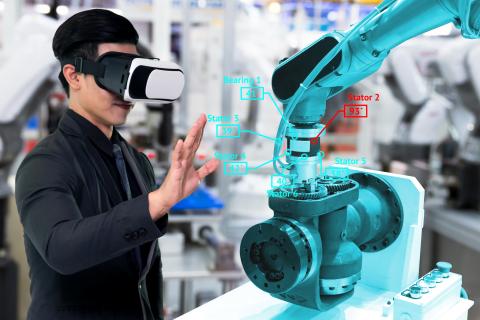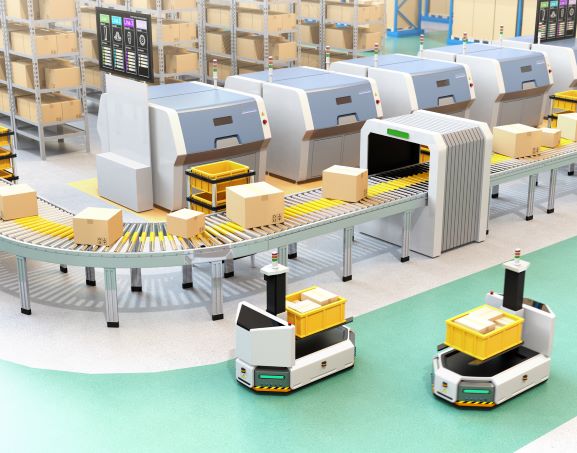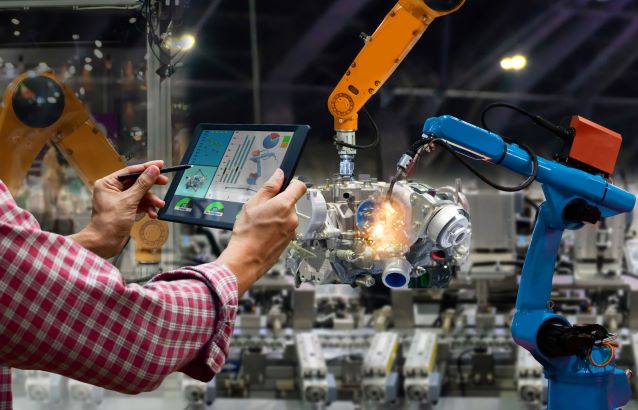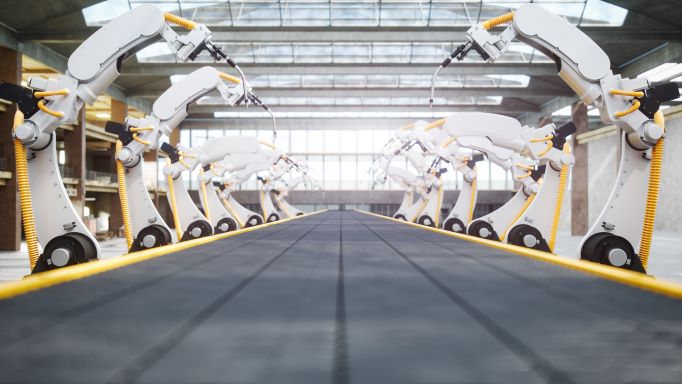Online Technical Training Blog

Looking Forward: The Smart Factory of the Future
The potential that smart factories have to completely transform our world cannot be understated. With advancements in artificial intelligence and computer learning, manufacturers are increasingly turning their attention to the benefits of implementing smart factories within their plants. While the concept of a smart factory is not new, there are still some manufacturers who are slow to jump on the trend due to a variety of reasons, but especially because of the recent global pandemic that brought the world to a standstill. Although more manufacturers are becoming aware of the advantages of smart factories, it’s understandable that there is hesitancy. Refusing to implement smart factories because of a volatile marketplace may seem like an understandable decision, but it would be a misstep as smart factories could ease the kind of unpredictability we’ve currently been seeing.
Follow along as we unpack what smart factories are, what we can expect to see from them in the future, and how they’re enhancing our world.
What Does “Smart Factory” Mean?
When we talk about the fourth industrial revolution (also known as Industry 4.0), smart factories are frequently if not always mentioned. That’s because smart factories are a key aspect of Industry 4.0, which heavily focuses on connectivity, automation, machine learning and embedded sensors.
Smart factories combine physical production processes and operations with big data, artificial intelligence, robotics, analytics and the Internet of Things – by doing this, a smart factory can continuously collect and share data through connected machines, devices and production systems. By adopting a smart factory, manufacturers are able to tap into the constant stream of data from connected operations to address issues, improve processes and adapt to new demands. The result is a more streamlined process that is not only agile, but resilient. As more markets experience economic stress, these efficient supply chains are more important than ever, balancing out the work for manufacturers and clients alike.
A specific industry that’s keen on adopting advanced manufacturing technologies is the automotive sector. According to a report by Capgemini Research Institute, automakers are planning to increase investment in smart factories by over 60% by 2023. By making their move to smart factories, auto companies hope to see productivity gains of more than $160 billion. Some of the technologies they’re looking to implement include: advanced automation, cloud computing, 5G networking, virtual assembly technologies, and 3D printing. Not only will this result in a massive productivity boost, the companies can expand to execute made-to-order initiatives and correct quality issues that are difficult for humans to detect.

What to Expect in the Future
Digitalization and automation are here to stay as they allow companies to produce more while lowering costs and improving efficiency in all regards. But smart manufacturing technology will only continue to evolve as we progress, sparking new and intriguing technological developments that will keep us on our toes.
5th Generation Mobile Network
Compared to other industries, manufacturing and transportation sectors spend more on IoT. As such, companies need to be able to manage the huge amount of data from these connected devices. 5G is something that can facilitate this. 5G, or the 5th generation mobile network, offers faster speeds, lower latency, large bandwidth and edge computing capabilities.
As 5G can enable manufacturers to connect more sensors and devices through a single network, companies can have better visibility into their supply chain. Smart sensors can convert data into different units of measurement, communicate with other devices, and record metrics. They’re also able to shut down machines if a safety or performance issue ever occurs. Businesses will be able to better understand which systems are performing and underperforming when they have data from sensors in the cloud, which will help them make more informed business decisions.
Remote Learning and Augmented Reality
Testing projects and devices in a virtual world will also be more commonplace within smart factories. As new tools are developed to address a growing need for remote learning, working, and collaboration, we will see augmented reality expand. This means that an engineer in Canada can consult with an engineer in China on an issue in real time, expediting the feedback and recovery process.
There is no doubt that artificial intelligence and machine learning play pivotal roles in smart manufacturing. However, input from humans is still important. Not only do they have to oversee the technology, they are needed to gather, interpret and apply data. There will absolutely be a change in employment opportunities, but this does not necessarily mean a decrease in available positions.

Employment Outlook
As more manufacturers embrace the shift to smart factories, their workforce has to be equipped with the right skill set. This means more robots in smart factories, yes, but also more robots managed by humans. Employees with the necessary skills and expertise will be required to oversee various aspects within smart factories such as management and operation of robotic solutions and cybersecurity. They will also have to manage device maintenance and learn how to program them. Almost every sector that adapts to smart factories will need new kinds of workers, creating millions of new jobs.
However, the digital talent gap is a trend that is on the rise as more companies continue to implement digital technologies. According to MHI’s Annual Industry Report, companies find it very difficult to implement digital technologies due to the lack of workers who have the necessary skills to operate them. Companies can consider developing their employees’ skills and knowledge by providing them the option to complete technology courses online. Employees and those who are looking to make a career change can also enrol in technology courses to gain the necessary skills that are in high demand.
If you’re interested in smart factories and want to learn more, then check out our online technical training programs. Advance your career today while studying in the comfort of your own home.

Efficiency is the End Goal
Smart factories are already the norm in many industries and will surely continue to flourish. They enable manufacturers to stay competitive, improve supply efficiencies and reduce costs. As machines become more complex, so will the employment requirements that rise alongside them.
If you’re interested in learning or upgrading your skills within this field, take a look at the different technology courses online that you can enrol in.


